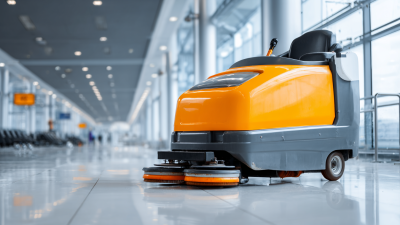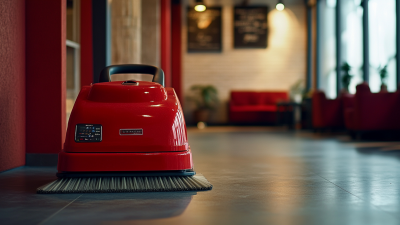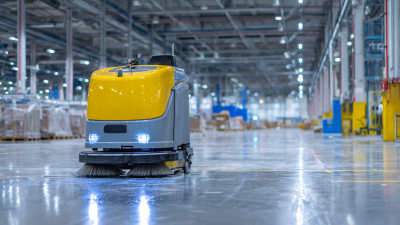Leave Your Message
In today's fast-paced industrial landscape, maintaining a clean and safe environment is paramount, and an Industrial Floor Scrubber is an indispensable tool for achieving this goal. According to a recent report by Grand View Research, the global floor cleaning machines market size is projected to reach USD 4.51 billion by 2025, growing at a compound annual growth rate (CAGR) of 4.3%. This statistic underscores the increasing reliance on advanced cleaning equipment as businesses strive to enhance operational efficiency and comply with stringent sanitation regulations. Choosing the right Industrial Floor Scrubber not only improves cleanliness but also contributes to worker safety and productivity. In this ultimate guide, we will explore essential tips and considerations that will help you select the ideal scrubber tailored to your specific business needs.
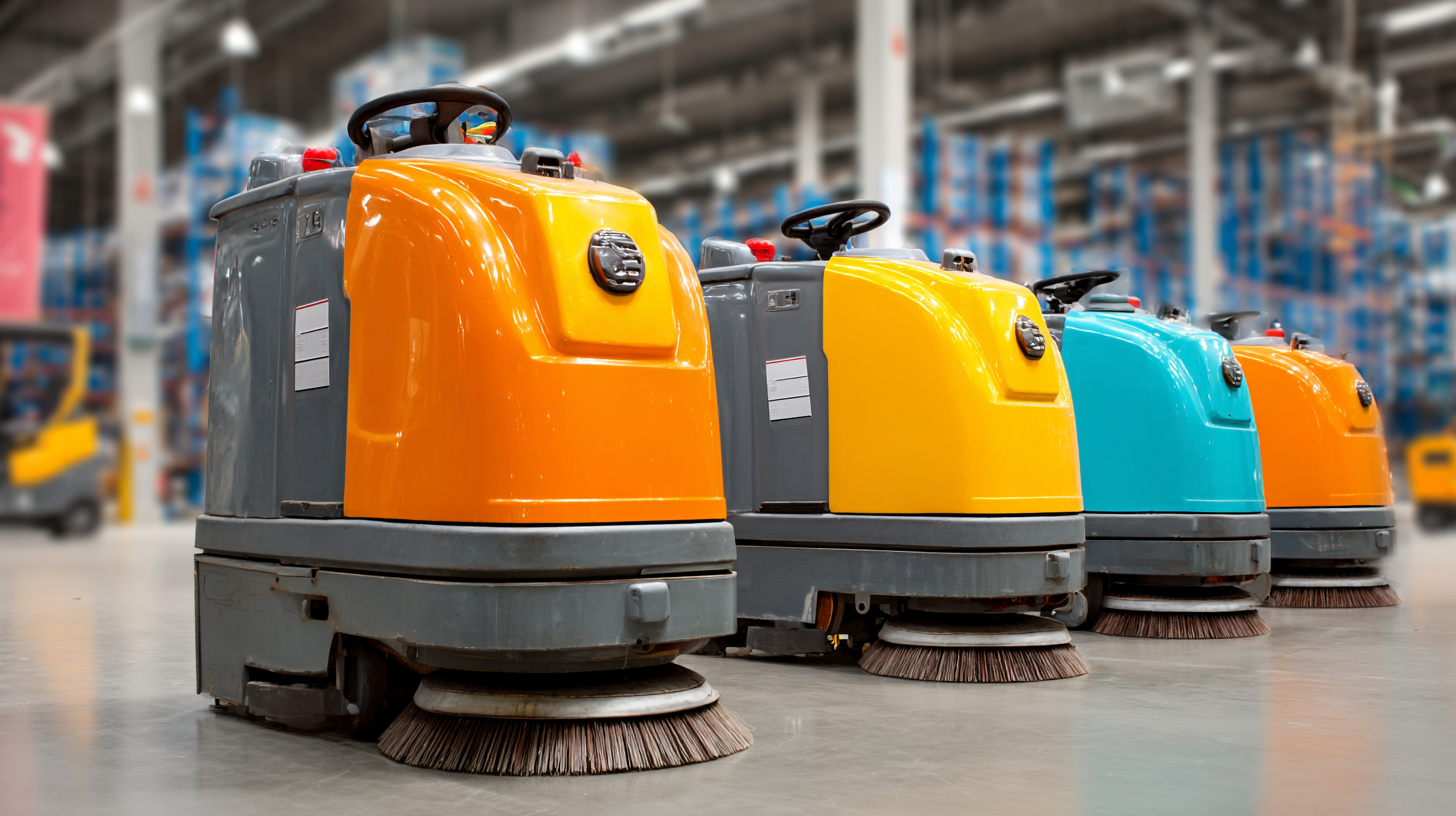
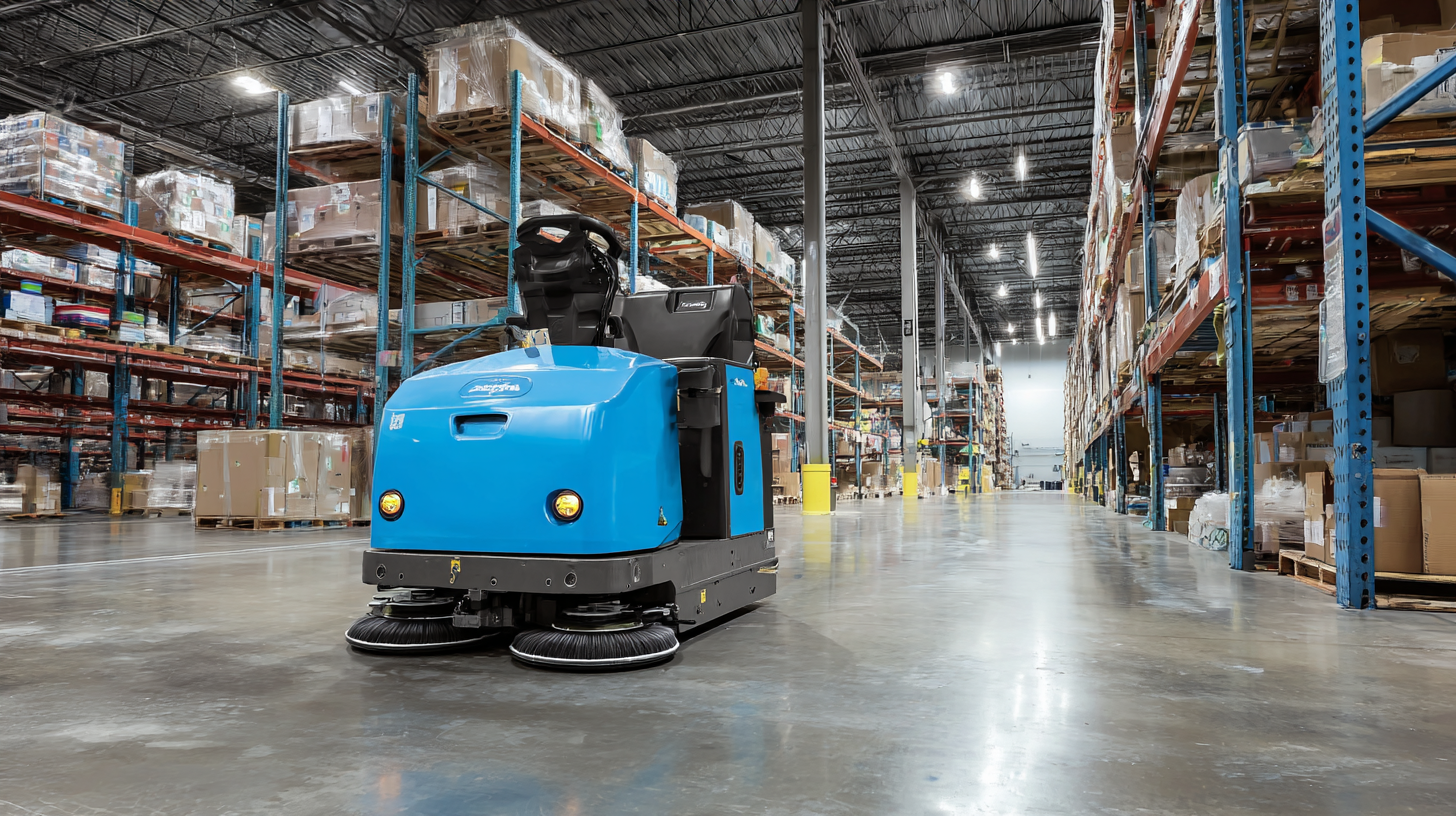 When selecting the right industrial floor scrubber for your business, it's crucial to identify your unique floor care needs and challenges. Different industries have varying requirements based on foot traffic, types of flooring, and the nature of spills. For instance, a manufacturing facility may need robust scrubbers that can handle heavy machinery debris, while a retail space might prioritize quiet operation and quick drying times to minimize disruption to customers. Understanding these specific needs is the first step in making an informed choice.
When selecting the right industrial floor scrubber for your business, it's crucial to identify your unique floor care needs and challenges. Different industries have varying requirements based on foot traffic, types of flooring, and the nature of spills. For instance, a manufacturing facility may need robust scrubbers that can handle heavy machinery debris, while a retail space might prioritize quiet operation and quick drying times to minimize disruption to customers. Understanding these specific needs is the first step in making an informed choice.
Moreover, embracing innovative technologies can significantly enhance floor care efficiency. Many modern floor scrubbers are now equipped with advanced features that utilize AI to optimize cleaning paths, monitor battery levels, and even analyze the level of soil on surfaces. This allows businesses to streamline operations, reduce labor costs, and ensure consistent cleanliness. By assessing your operational challenges and integrating cutting-edge solutions, you can select a floor scrubber that not only meets your cleaning needs but also drives overall operational success.
When it comes to maintaining cleanliness in industrial spaces, choosing the right floor scrubber is crucial. There are several types of industrial floor scrubbers available, each designed to meet specific cleaning needs. For example, ride-on scrubbers are ideal for large areas since they allow operators to clean while seated, significantly increasing productivity. In contrast, walk-behind scrubbers offer greater maneuverability for smaller spaces or congested areas, making them a versatile option for various facilities.
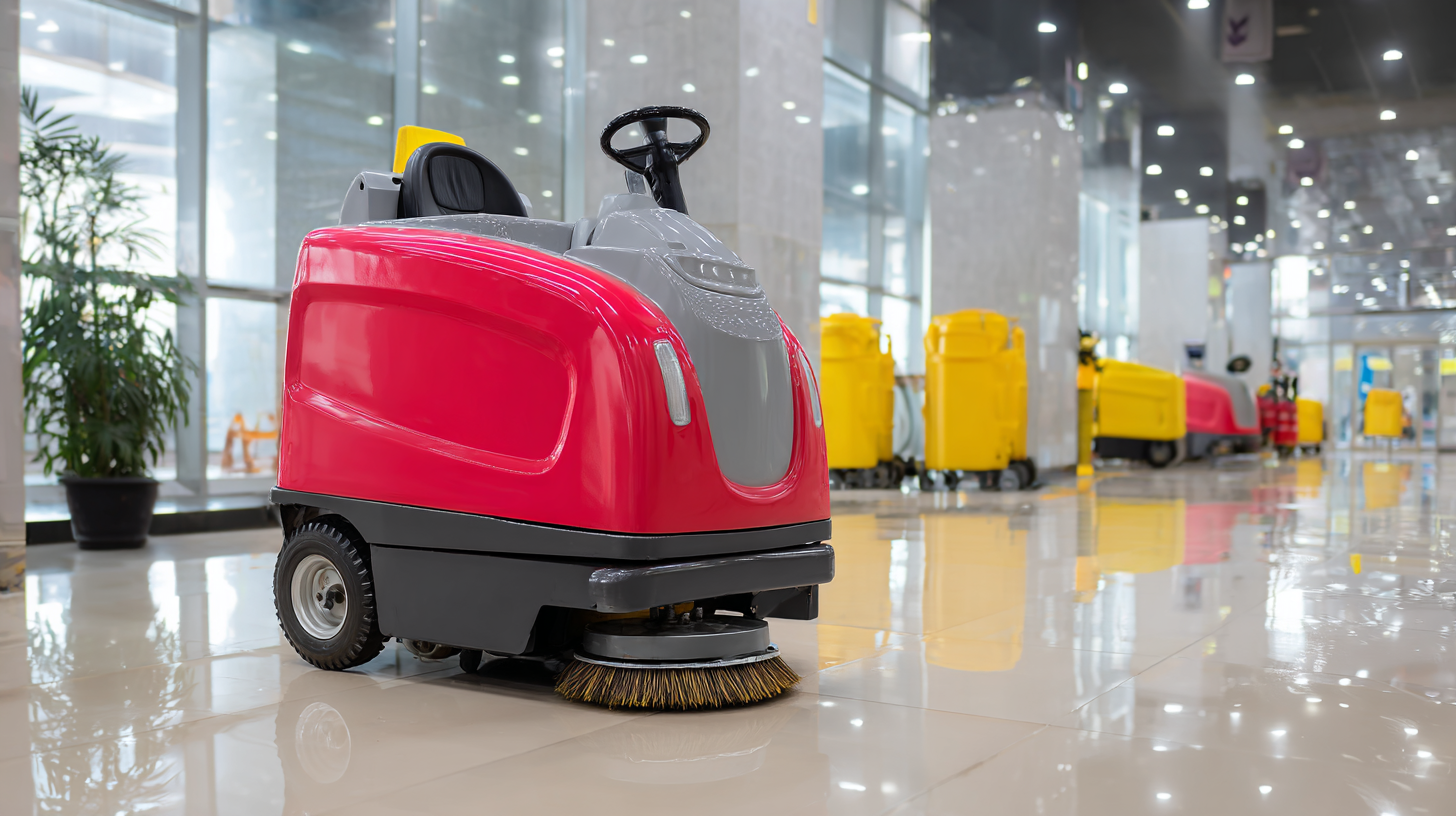
Tip: Consider the size of your facility and the type of flooring before selecting a scrubber. Soft floor tiles may benefit from a lightweight model, while rugged concrete might require a more robust machine.
Also, it's important to assess the water and chemical usage of different models. Some scrubbers are designed to be eco-friendly, utilizing less water and biodegradable cleaning solutions, which can be a significant advantage for businesses looking to reduce their environmental impact.
Tip: Don’t forget to evaluate the maintenance requirements of the scrubber. Machines that are easier to maintain can save your business time and money in the long run. Make sure to check if parts are readily available and consult user reviews on the reliability of the scrubber you are considering.
When selecting the right industrial floor scrubber, evaluating key features like power, efficiency, and technology integration is essential for optimizing cleaning operations. According to a report by the International Facility Management Association, modern floor scrubbers can reduce cleaning times by up to 30%, significantly increasing operational efficiency. Power is crucial as it determines the scrubber's ability to handle various surface types, including heavily soiled areas. High-performance models often feature brush motors with varying RPMs, enabling them to adapt to different cleaning tasks effectively.
Efficiency is not solely dependent on power; it also involves water and chemical usage. A study by the Cleaning Industry Research Institute found that advanced scrubbers with integrated water management systems can save up to 50% more water and cleaning solutions compared to traditional methods. This not only lowers operational costs but also contributes to sustainable practices. Furthermore, technology integration, such as IoT connectivity and automated features, allows for real-time monitoring and predictive maintenance, ensuring that machines operate at peak performance with minimal downtime. By focusing on these key features, businesses can select a floor scrubber that not only meets their cleaning needs but also enhances overall productivity and cost-effectiveness.
This chart compares the power, efficiency, and technology integration of various models of industrial floor scrubbers, helping you make an informed decision.
When selecting an industrial floor scrubber, businesses often grapple with the initial investment compared to long-term savings. According to the Cleaning Industry Research Institute, switching to automatic floor cleaning machines can reduce labor costs by up to 50%. For example, a manual scrubbing process typically requires two employees working for three hours to clean 10,000 square feet, costing about $120. In contrast, an automatic scrubber could cover the same area in one hour with just one operator, resulting in a savings of $80 per session.
Moreover, the total cost of ownership (TCO) plays a crucial role in the decision-making process. The American Society for Healthcare Engineering reported that effective floor maintenance could extend the lifespan of flooring by 15-25%, translating to significant savings on replacement costs. Over a five-year period, businesses could save thousands in flooring repairs and replacements, making the upfront investment in a high-quality scrubber more justifiable. By evaluating both the immediate costs and long-term financial benefits, companies can make more informed choices that enhance their operational efficiency.
When selecting an industrial floor scrubber, maintenance and support are critical factors that can significantly impact the longevity and efficiency of the equipment. According to a report by the Cleaning Industry Research Institute, regular maintenance can enhance a scrubber's lifespan by up to 50%, thereby reducing the total cost of ownership. This not only ensures optimal cleaning performance but also minimizes downtime, which can be detrimental to business operations.
Moreover, the level of support offered by manufacturers and suppliers can vary greatly. A comprehensive support program that includes training, responsive maintenance services, and access to spare parts can greatly influence the effectiveness of your chosen machine. The ISSA (International Sanitary Supply Association) highlights that 30% of organizations experience challenges in maintaining their floor cleaning equipment due to inadequate support. By prioritizing suppliers with robust maintenance plans and customer support, businesses can safeguard their investments, maintain cleaning standards, and enhance employee productivity.
